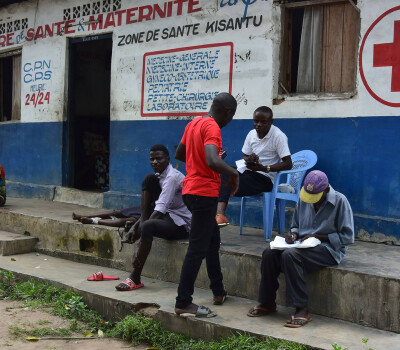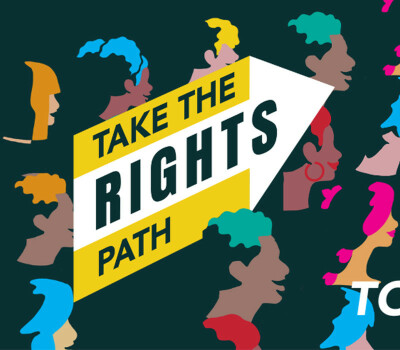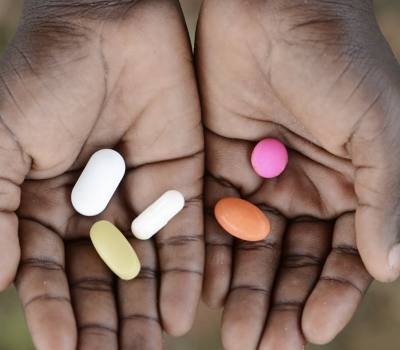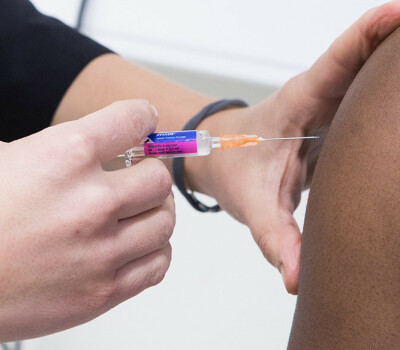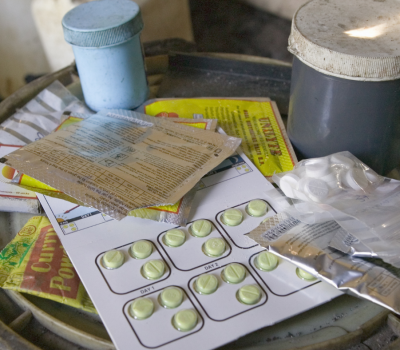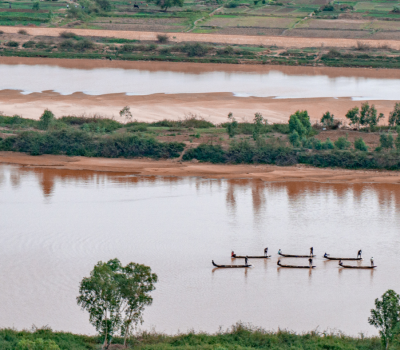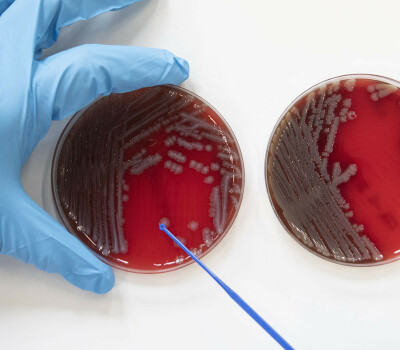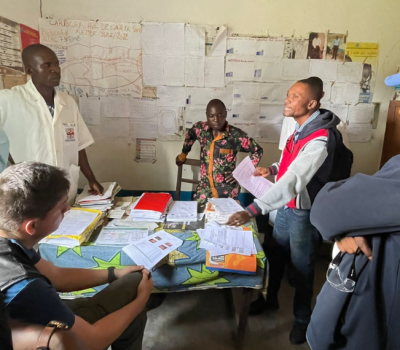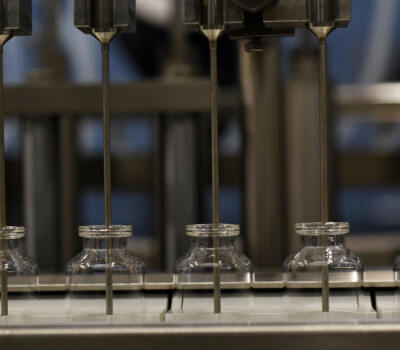Let all the children go back to school

The corona epidemic’s broad social consequences will only be fully visible once the current measures have been lifted. As child psychiatrists, psychologists, general practitioners, pediatricians, social workers, physiotherapists, educationalists and scientists, we already see the first alarming signals in our (digital) waiting rooms and in the field. The psychological, social and physical consequences of this semi-lockdown on children and adolescents begin to show. Friday, the first students will be allowed to return to school. We hope, however, that all children will be able to return to their familiar school environment this school year. After all, next to their educational function, schools also have an important primary care and signaling function. Especially for children and young people in vulnerable home situations it is important that this care system is quickly restarted and strengthened. Only this way will allow for coping well with the many - yet invisible - social consequences.
Children are incredibly resilient. After a short adaptation period, they develop new and different skills in new situations. However, many parents may acknowledge that the quarantine begins to weigh on them. In several Flemish studies, families with children have indicated the impact on their mental health and well-being. The combination of digital work and caring for children (later complemented by pre-teaching) becomes heavier and may give rise to conflicts. Italian and Spanish research showed that the majority of parents observed behavioral changes in their children: difficulties in concentrating, irritability, boredom, anxiety, nervousness, feelings of loneliness, uneasiness and worries. Due to the prolonged closure of schools, social contacts with peers are reduced, as is contact with trusted persons such as teachers. In the meantime, also children and young people are increasingly worried. Concerns and fears of infection, about friends and family, about their future. The disappearance of the school routine also has physical consequences, sleeping patterns become more irregular, screen time increases and moving around is limited.
More child abuse
For children living in vulnerable families, the psychological, social and physical consequences of quarantine add on to pre-existing problems. One in five Belgian children already lived in poverty before the corona epidemic. On top of this, the social welfare system (OCMWs or CPAS), the food banks and the network against poverty report increasing individual financial concerns and requests for support, in particular from single parents with small children. For those living in small houses, without gardens, in a densely populated neighborhoods it is literally difficult to 'distance oneself' from increasing concerns and tensions. Escape to closed playgrounds and social meeting centers is impossible due to the measures in place. Anxious parents are another factor: some children have not been outside for weeks due to fear of infection. Other parents may be forced to leave their children at home alone because they have to go back to work and may not know where to seek day care. The police has reported 30% more child abuse, the hotline 1712 has launched an additional campaign responding to increased reports of intra-family violence. Since the start of the lockdown, emergency services have seen more children fall victim to violence than children with corona-related problems.
While the debate these corona times is (rightly) mainly about the epidemiological risk, collectively we seem to forget that schools fulfil many more tasks. However, the epidemiological figures are clear: SARS-CoV 2 infections are mild in children and serious diseases progression is highly exceptional. Thanks to the efforts of the entire population, the current COVID19 curve has flattened. If all sectors where exit strategies have been implemented already, will strictly follow the guidelines, mathematical modeling predicts that the reopening of the schools will not cause a new re-emergence of the epidemic. Especially since schools will already close at the end of June and contact tracing will be rolled out at the same time. For the school environment, evidence-based guidelines are available focusing on the "bubble" principle (a class = a bubble) in addition to the by now well-known physical distancing and hand hygiene measures. Well-underpinned COVID19 education for children is already available (https://vvkindergeneeskunde.be/coronaspel).
Listening to children’s needs
Next to physical safety, schools also offer psychological and social safety and are important in the primary care system. Problems are often first noticed by (special care) teachers. Schools have insight into problems that other care providers are often unaware of and teachers can make targeted referrals and follow it up on a long-term basis. Schools are also safe havens, children and young people are among their peers where they are listened to in an age-appropriate manner.
We are concerned about the consequences of this corona-epidemic on families. Schools are an important ally in identifying and addressing the above-described problems. We hope that all children will be able to return to their schools before the summer holidays. We also hope that the schools and their allies offering the relevant psychosocial support are given sufficient resources and support to fulfil their primary care function optimally.
Written by
- Prof Dr. Inge Glazemakers (developmental psychologist, ZNA-UKJA/UAntwerpen),
- Dr Jasna Loos (coordinator interdisciplinary spearhead research infectious diseases, vaccinology, public health and primary care, UAntwerpen),
- Prof Dr Heidi Theeten (youth physician and epidemiologist, UAntwerpen),
- Prof Dr Jean-Pierre Van Geertruyden (outbreak prevention, research and control specialist, UAntwerpen),
- Prof Peter Raeymaeckers (social work, UAntwerpen) and
- Dr Christiana Nöstlinger (health psychologist and health promotion specialist for vulnerable groups, Institute of Tropical Medicine)
Signed by
- Marc Raes, Voorzitter van de Belgische Vereniging voor Kindergeneeskunde en coördinator van de Belgische pediatrische COVID-19 task force
- Tyl Jonckheer, voorzitter Belgische Beroepsvereniging voor Kindergeneeskunde en coördinator van de Belgische pediatrische COVID-19 task force.
- Hanne Apers, Centre for Migration and Intercultural Studies, UAntwerpen
- An Bael, voorzitter Vlaamse Vereniging voor Kindergeneeskunde en gastprofessor UAntwerpen
- Hilde Bastiaens, Huisartsgeneeskunde, UAntwerpen – huisarts en jeugdarts in Antwerpen
- Philippe Beutels, directeur Centre for Health Economics Research & Modelling Infectious Diseases (CHERMID), UAntwerpen
- Pauline Boeckxstaens, Huisarts en Doctor Assistent Universiteit Gent
- Johan Boxstaens, Docent & onderzoeker Sociaal Werk, Universiteit Antwerpen en KdG Hogeschool
- Gunnar BUYSE, diensthoofd kindergeneeskunde, UZ Leuven, kliniekhoofd, kinderneurologie, UZ Leuven gewoon hoogleraar, KU Leuven
- Kirsten Cattoor, wetenschappelijk secretaris Vlaamse Vereniging voor Psychiatrie, CAPRI, UAntwerpen
- Luc Claessens, Algemeen directeur, Jeugdzorg Emmaüs Antwerpen
- Jill Coene, socioloog, UAntwerpen
- Robert Colebunders, Global Health Institute, UAntwerpen
- Hilde Colpin, gewoon hoogleraar schoolpsychologie KU Leuven
- Bart Criel, hoogleraar departement volksgezondheid, Instituut Tropische Geneeskunde
- Sofie Crommen, voorzitter van de Vlaamse Vereniging voor Kinder- en Jeugdpsychiatrie (VVK vzw)
- Siel Daelemans, Kinderlong- en infectieziekten, UZ Brussel, VUB
- Lieve De Backer, psychiater transitiepsychiatrie, PZ Multiversum, gastdocent UAntwerpen
- Ilse De Canck, onderzoekscoördinator faculteit geneeskunde en gezondheidswetenschappen, UAntwerpen
- Kristof Decoster, health policy unit, Instituut voor Tropische Geneeskunde
- Koen Dedoncker, Beweging tegen Geweld - vzw Zijn, gespecialiseerd in preventie van familiaal en seksueel geweld
- Katya De Groote, Kinderarts-Kindercardioloog, UZ Gent
- Ann De Guchtenaere, kinderarts, Secreatis-Generaal European Academy of Paediatrics, Ondervoorzitter Vlaamse Vereniging Kindergeneeskunde
- Winni De Haes, Assistant over Fidlab (Labogroep Medina) & voedingsdeskundige
- Ingrid De Jonghe, Voorzitster TEJO Antwerpen - TEJO Vlaanderen
- Lucia De Haene, Faculteit Psychologie & Pedagogische Wetenschappen & Transculturele Trauma-zorg vluchtelingen, PraxisP, KU Leuven
- Stéphanie De Maesschalck, Vakgroep Huisartsengeneeskunde en Eerstelijnsgezondheidszorg, Universiteit Gent
- Jeroen De Man, huisarts en onderzoeker UAntwerpen
- Joke De Pauw, kinesitherapeut en assistent Revalidatiewetenschappen en Kinesitherapie UAntwerpen
- Ilse Derluyn, Centre for the Social Study of Migration and Refugees, UGent
- David de Vaal, Algemeen coördinator Netwerk tegen Armoede
- Benedicte De Winter, vice-decaan faculteit Geneeskunde en Gezondheidswetenschappen UAntwerpen
- Monica Dhar, psycholoog ZNA-UKJA, docent UAntwerpen en VUB
- Jeroen Dillen, Algemeen Coördinator Vlaams Overlegplatform Geestelijke Gezondheid
- Tinne Dilles, onderzoeker Verpleegkunde en Vroedkunde, Universiteit Antwerpen
- Geert Dom. Hoogleraar psychiatrie UAntwerpen. Voorzitter Belgische Beroepsverenigng Geneesheren Specialisten in de Psychiatrie.
- Kristel Driessens, Master Sociaal Werk, UAntwerpen & Expertisecentrum Krachtgericht Sociaal Werk, Karel de Grote Hogeschool.
- Lies Durnez, onderzoekscoördinator Revalidatiewetenschappen en kinesitherapie, REVAKI/MOVANT, UAntwerpen
- Mieke Duthoo, psychologe, Bemok: begeleidingscentrum bij type 3- en 9-school voor kinderen met gedrags- en emotionele problemen en/of ASS, eigen praktijk voor kinderen en jongeren, bestuurslid Regionale Psychologenkring Kortrijk-Kuurne-Harelbeke, bestuurslid Zorgraad ELZ Kortrijk
- Erik Franck, Centre for Research and Innovation in Care, UAntwerpen
- Els Gadeyne, coördinator PraxisP, Praktijkcentrum Faculteit Psychologie en Pedagogische Wetenschappen, KU Leuven
- Nick Gebruers; Kinesitherapeut en docent REVAKI-MOVANT Universiteit Antwerpen
- Steven Gibens, sociaal werk KdG en Fac. Rechten Universiteit Antwerpen
- Dr. Kris Goethals, forensisch psychiater UFC/UZA en CAPRI/GGW/UAntwerpen
- Herman Goossens, Microbioloog, UZA, Universiteit Antwerpen en Utrecht.
- Hans Grietens, hoogleraar orthopedagogiek, Faculteit Psychologie en Pedagogische Wetenschappen, KU Leuven
- Charlotte Gryseels, Medische Antropologe, Instituut voor Tropische Geneeskunde, Antwerpen
- Cécile Guérin, jeugdarts, KU Leuven, Departement Maatschappelijke Gezondheidszorg en Eerstelijnszorg, Centrum voor Omgeving en Gezondheid & Vlaamse Wetenschappelijke Vereniging voor Jeugdgezondheidszorg
- Ann Hallemans, docent, onderzoeksgroep MOVANT, Universiteit Antwerpen
- Guy Hubens, decaan faculteit Geneeskunde en Gezondheidswetenschappen, UAntwerpen
- Kris Ides, Kinesitherapeut praktijkassistent Revaki Uantwerpen, UZA
- Brecht Ingelbeen, epidemioloog, Instituut voor Tropische Geneeskunde
- Marie Laga, hoogleraar departement volksgezondheid, Instituut voor Tropische Geneeskunde, Antwerpen
- Bert Lefevre, Huisarts, “Functional Medicine” arts, Consulent Fidlab
- Caroline Masquillier, medisch socioloog UAntwerpen
- Mira Meeus, Hoogleraar Revalidatiewetenschappen en Kinesitherapie, UAntwerpen en UGent.
- Petra Meier, decaan faculteit Sociale Wetenschappen, UAntwerpen
- Veerle Michiels, Docent lerarenopleiding, Odisee, Brussel
- Wilhem Mistiaen, docent Anatomie, UAntwerpen
- Marian Moens, Medisch Directeur Heder
- Hedwig Neels, Women’s Health Kinesitherapeut en postdoctoraal onderzoeker UAntwerpen, UZA
- Ilse Noens, hoogleraar orthopedagogiek, KU Leuven
- Koen Pepermans, faculteitsdirecteur Faculteit Sociologie, UAntwerpen
- Hilde Philips, Huisartsgeneeskunde, UAntwerpen – docent en onderzoeker niet-planbare zorg, huisarts
- Roy Remmen, huisarts en hoogleraar UAntwerpen
- Thijs Reyniers, Socioloog, departement volksgezondheid, Instituut Tropische Geneeskunde, Antwerpen
- Nathalie Roussel, hoofddocent Revalidatiewetenschappen en Kinesitherapie, UAntwerpen
- Iris Saerens, lerares NT2, Centrum voor Basiseducatie Antwerpen
- Petra Schelstraete, Kinderinfectieziekten, UZ Gent
- Didier Schrijvers, psychiater UPC Duffel, hoofddocent UAntwerpen
- Chloë Soens, klinisch psycholoog - psychodynamisch psychotherapeut ambulante gezondheidszorg (groepspraktijk) ; divisie zelfstandig psychologen Vlaamse Vereniging Klinisch Psychologen ; bestuurslid Reginale Psychologenkring
- Kim Steeman, Coördinator Familieplatform GG
- Jan Steyaert, master sociaal werk, UAntwerpen
- Elke Struyf, gewoon hoogleraar Onderwijswetenschappen, Antwerp School of Education & Faculteit Sociale Wetenschappen, UAntwerpen
- Filip Struyf, Revalidatiewetenschappen en Kinesitherapie, hoofddocent UAntwerpen
- Michel Tirions, opleidingshoofd Ba Sociaal Werk en onderzoeker AP Hogeschool
- Eric van Breda, Bewegingswetenschapper, Vakgroepvoorzitter Revalidatiewetenschappen en Kinesitherapie, UAntwerpen
- Daan Van Brusselen, Kinderarts infectieziekten GZA ziekenhuizen, Belgian Pediatric COVID-19 Task Force
- Nathalie Van Ceulebroeck, lector-onderzoekers sociaal werk, AP Hogeschool.
- Sabine van daele, diensthoofd pediatrie UZ gent
- Sylvie Van Dam, onderzoeker Sociologie en Master Sociaal Werk, CRESC – UAntwerpen
- Pierre Van Damme, epidemioloog, vice-decaan Faculteit Geneeskunde en Gezondheidswetenschappen, UAntwerpen
- Tine Van Damme, Psychomotore therapeut, Research Group for Adapted Physical Activity and Psychomotor Rehabilitation, KULeuven
- Wim Van Damme, arts & gewoon hoogleraar Volksgezondheid en Gezondheidsbeleid, Instituut voor Tropische Geneeskunde, Antwerpen
- Rafael Van Den Bergh, Global Health Institute, UAntwerpen
- Filip Van den Eede, medisch coördinator Universitaire Ziekenhuisdienst Psychiatrie UZA, CAPRI, UAntwerpen
- Marianne van der Sande, hoofd departement Volksgezondheid, Instituut voor Tropische Geneeskunde, Antwerpen
- Patricia Van de Walle, post-doctoraal onderzoeker Pediatrische Revalidatie, Vakgroep Revalidatiewetenschappen en Kinesitherapie (Movant), UAntwerpen
- Corinne Vandermeulen, Jeugdgezondheidszorg, KU Leuven
- Veerle Van Gestel, Opleidingshoofd Sociaal Werk KdG
- Roel Van Giel, Voorzitter Domus Medica
- Luc Van Gorp, voorzitter CM
- Linda Van Grootel, beleidspsychiater ZNA-UKJA
- Guido Van Hal, medisch socioloog UAntwerpen
- Guido Van Ham, Prof Emeritus Virologie en Infectieziekten aan UAntwerpen en Instituut voor Tropische Geneeskunde
- Stijn Van Hees, Laboratory for Experimental Medicine and Paediatrics, UAntwerpen
- Anouk Vanlander, wetenschappelijk medewerker Wetenschappelijke Vereniging voor Jeugdgezondheidszorg (VWVJ)
- Mark van Oort, pediater UZA
- Lore Van Praag, Centre for Migration and Intercultural Studies, UAntwerpen
- Bea Van Robaeys, onderzoeker Expertisecentrum Krachtgericht Sociaal Werk & lector sociaal werk Karel de Grote Hogeschool
- Paul Van Royen, huisarts en gewoon hoogleraar Universiteit Antwerpen, voorzitter Vertrouwenscentrum Kindermishandeling Antwerpen
- Aaron Van Steenlandt, onderzoeker Expertisecentrum Krachtgericht Sociaal Werk, Karel de Grote Hogeschool Antwerpen
- Dirk van West, kinder- en jeugdpsychiater, hoofddocent UAntwerpen en VUB
- Griet Vercaeren, Coördinator Vlaams Overlegplatform Geestelijke Gezondheid thema zorgcontinuïteit voor jongeren en jongvolwassenen
- Pascale Vereecke, onderzoeker en lector Karel de Grote Hogeschool Antwerpen
- Evelien Verlinden, sociaal werker contextbegeleiding, begeleidingscentrum bijzondere jeugdzorg
- Stijn Verhulst, diensthoofd Kindergeneeskunde UZA en hoofddocent Universiteit Antwerpen
- Sara Willems, Vakgroep Huisartsengeneeskunde en Eerstelijnsgezondheidszorg, Universiteit Gent
- Edwin Wouters, Centre for Population, Family & Health, hoogleraar medische sociologie UAntwerpen
Spread the word! Share this story on
